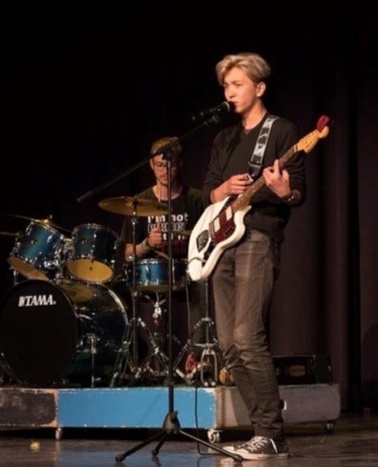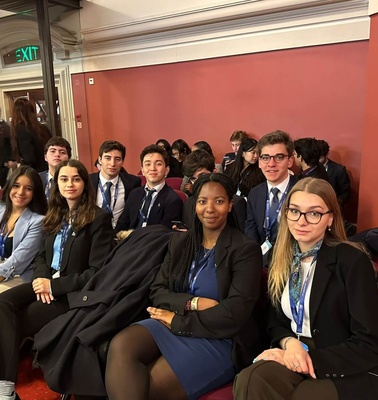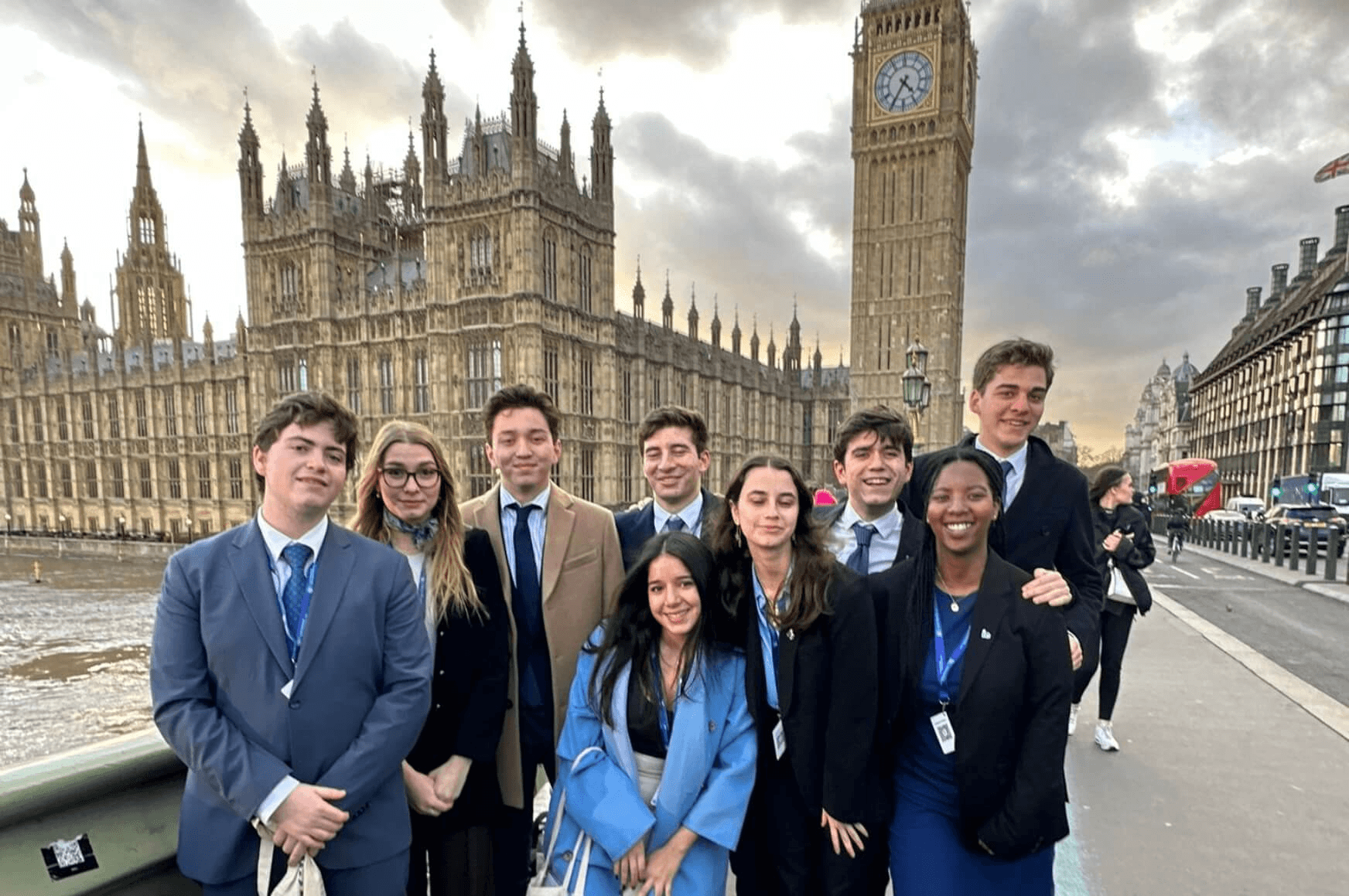
Tancrède Thoma
My name is Tancrède Thoma, but most of my friends call me Tanc. I’m passionate about all things creative, mainly music and audiovisual.
I originally studied business administration at Erasmus University, Rotterdam, but I found out very soon that I was not passionate about it. My dream was to work in the creative industries, and although a degree in business administration would have been useful, it was not my passion. I researched degrees and decided on the Bachelor in Communication and Digital Media at IE University. I could not be happier w ith my choice.

"I thoroughly enjoyed my experience at LIMUN, and am very grateful for the bonds I’ve made, as well as the knowledge I’ve acquired and challenges I’ve faced."
A passion for creativity and debating
With Asian and European heritage, and speaking four languages, Tancrède is truly a global citizen. While their main passions are storytelling and music, they had fond memories of Model United Nations events from high school and took the opportunity to join the IEU Debate Club at the invitation of a friend who was then the club’s president. This led Tancrède to participate in the London International Model United Nations (LIMUN) debate, an experience which they thoroughly enjoyed.
While traveling and living with a group of nine people proved challenging, the experience also gave Tancrède an opportunity to form close friendships with the other members of the delegation. Meeting people from so many different places enabled Tancrède to expand their knowledge of the world, but being immersed in an environment revolving around diplomacy was another significant factor in their learning experience. As a student of communications, they also appreciated the chance to explore geopolitics—a topic outside their main focus of study.
Tancrède feels that the IEU Debate Club taught them a lot about the etiquette, rules and techniques of Model United Nations (MUN) debates. However, they discovered that the style they had learned was different from that employed at LIMUN, where awards go to the most diplomatic delegates, and confrontations are largely absent. While Tancrède found it tricky to adjust to this new style, their previous training had prepared them for negotiation and reaching multilateral agreements—and indeed, their delegation ended up winning three awards, with Tancrède being awarded an honorable mention. Despite the rigors of the journey and the cramped living conditions, Tancrède says they could not have anticipated how much fun they had.

When asked what advice they would give to students interested in participating in this event, Tancrède’s first response is “Don’t be scared!” MUN debates can, they admit, be nerve-wracking, but fellow delegates are nicer than you might expect and, while some events are more competitive than others, the atmosphere is always friendly. LIMUN, in particular, while challenging, has a strong emphasis on cooperation and diplomacy. Tancrède points out that however competitive the event may be, there is never any bad feeling: the other delegates are competing by the same rules and are not there to humiliate or laugh at you.
Tancrède’s final piece of advice is to research your topic thoroughly: it’s hard to debate on a topic you haven’t prepared for. They stress that, while improvisational skills may cover up some flaws, being completely unprepared is hard to hide—an error which they admit to having made on the first day of the conference!